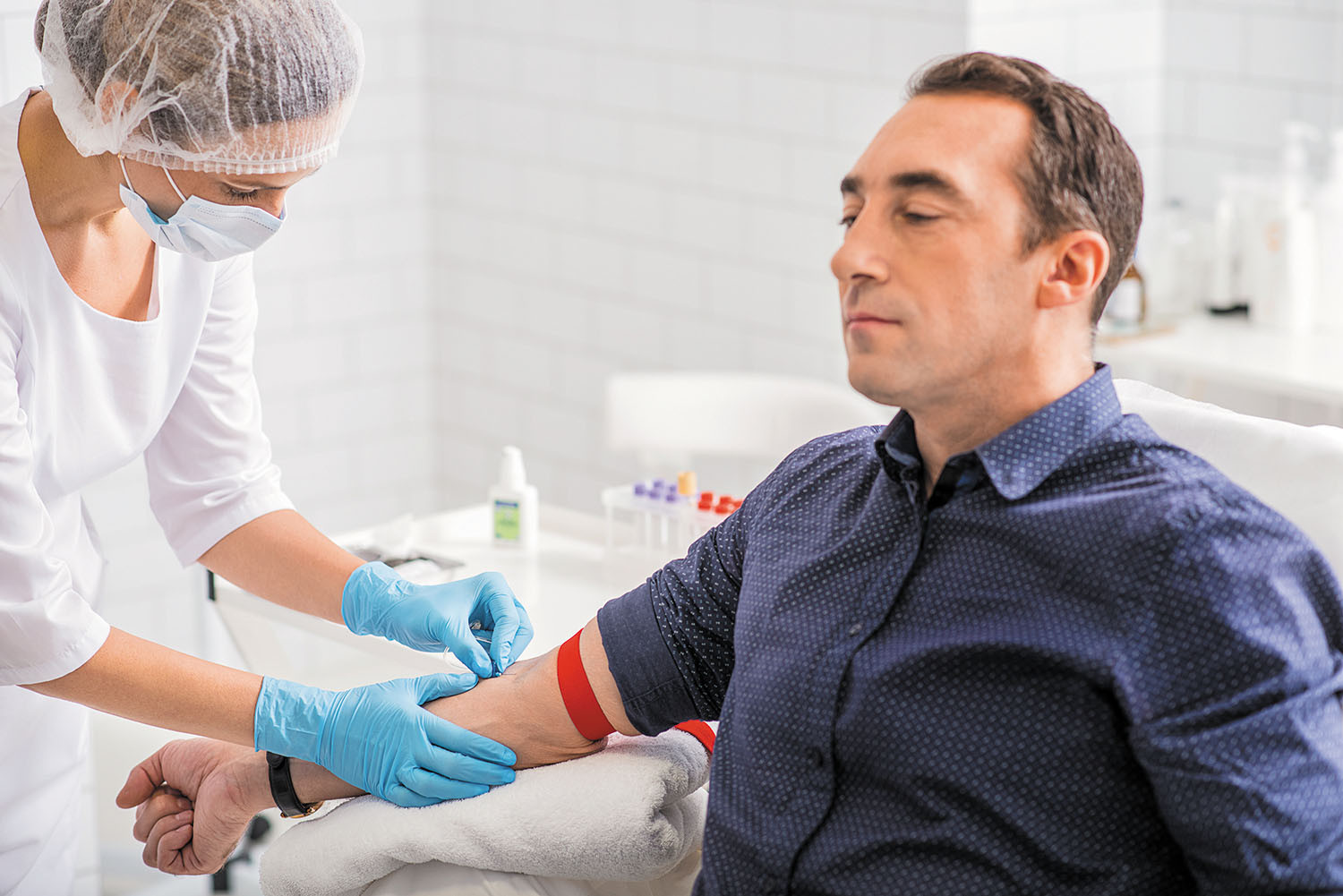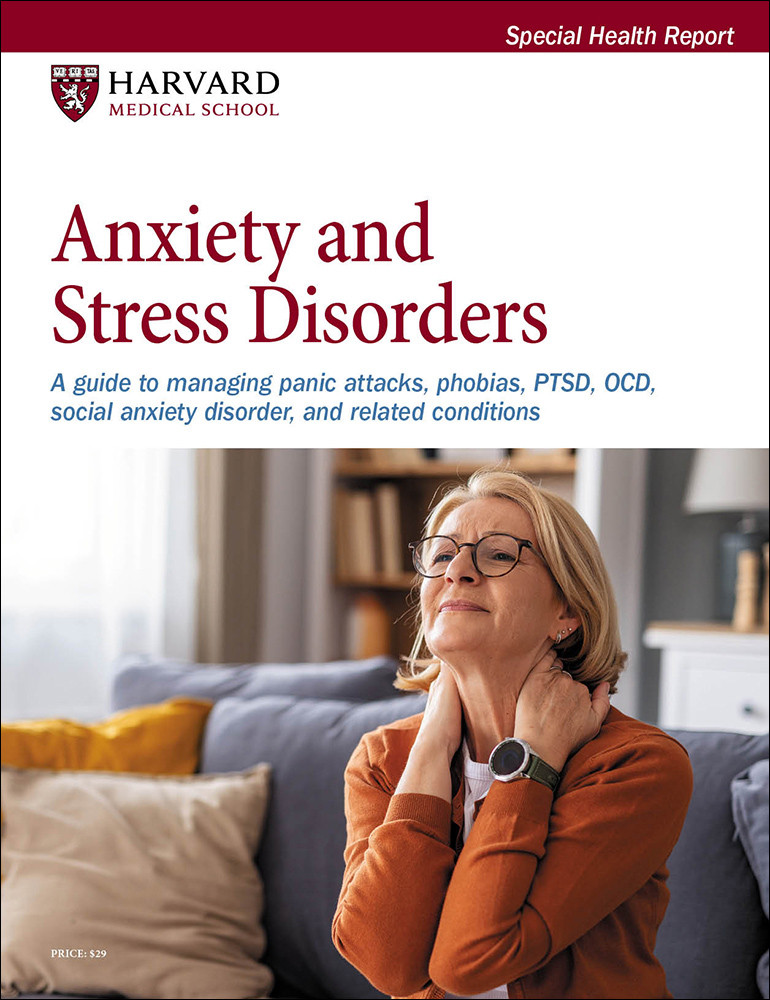Tips to cope with medical test anxiety
Here are some ways to push past the fear and take control of your health.
- Reviewed by Anthony L. Komaroff, MD, Editor in Chief, Harvard Health Letter; Editorial Advisory Board Member, Harvard Health Publishing

It's normal to be apprehensive about having a medical test, particularly one that can cause discomfort or pose some other risk. Even a simple blood test involves a moment of discomfort. Some people faint at the sight of the approaching needle; this intense fear of needles is called trypanophobia, and it leads some people to avoid blood tests, medication infusions, or vaccinations.
Some people worry about getting other medical tests, such as x-rays and CT scans, because they involve exposure to radiation. And being moved into the cramped confines of an MRI machine can spark panic for someone with claustrophobia (fear of being inside an enclosed space).
People with a different phobia, called latrophobia, are afraid to see a doctor, even a doctor they know and like. For others, a medical exam can feel like an invasion of your privacy, and some parts of the physical examination may be uncomfortable. Perhaps most of all, people fear the visit to the doctor will bring bad news.
Fortunately, there are ways to cope with these anxieties, and important reasons why you should.
Sources of anxiety
The source of medical test anxiety depends on the test and what you think you'll experience. Here are examples.
Pain and discomfort. "Needles hurt, and a lot of procedures are uncomfortable or unpleasant. Past experience with the procedure can also activate traumatic memories," says Justin Gillis, a clinical therapist at Harvard-affiliated McLean Hospital.
Bad news revealed in a test. Even if we're not worried about discomfort from a test, we can be very worried about the test result bringing bad news. So we can be tempted to avoid having the test: no test, no bad news.
Test complications. Exposure to harmful levels of radiation, reactions to contrast dye in imaging tests, or a punctured colon during a colonoscopy are real risks; they're just very small. In ordering these tests, doctors have weighed the benefit from the information provided by the test against the very small risks.
Consequences
Avoiding medical tests or doctor visits can have serious repercussions. "If you put off testing, you might not find out about problems that we can catch early and get under control. If you wait, the condition can worsen to the point where it's hard to treat," says Dr. Suzanne Salamon, associate chief of gerontology at Harvard-affiliated Beth Israel Deaconess Medical Center. "For example, problems with memory are not always signs of impending dementia that you can do little about. Sometimes, they're signs of an easily curable condition such as B12 deficiency or a low thyroid. But the only way to know is to get the tests," Dr. Salamon says.
In some cases, putting off tests can be a matter of life or death. "I had a patient who was at increased risk of breast cancer who would not get regular mammograms, despite my urging. Then we discovered a very large lump in her breast. She died late last year," Dr. Salamon says.
What you can do
To decide if skipping a test is a bigger problem than getting it, talk it over with a loved one or doctor, and try the following.
Change your perspective. "Avoiding a test won't change the possibility that there might be a health problem. And if there is a problem, knowing that as soon as possible will give you more treatment options, and possibly a cure," Gillis says.
Arm yourself with information. Talk to your doctor to get more information about a test and its risks. Or do some research on trusted websites such as Harvard Health Publishing or the National Library of Medicine.
Make the test more comfortable. Tell your provider about your concerns. "We can prescribe medication to numb the skin before a shot," Dr. Salamon says, "or we can prescribe a tranquilizer to ease the fear of an imaging test such as a mammogram." If you're claustrophobic, ask for an "open" MRI, which takes place in a machine that is open on the sides (unlike a standard MRI).
Coping in the moment
To better cope when you're getting a test, use these strategies.
Bring a buddy with you. The buddy can hold your hand and comfort you during the experience.
Try relaxation exercises. Do some deep breathing. Or focus on a happy experience: How did things look, taste, smell, or sound?
Look away from the needle. You'll focus on pain if you watch the needle go into your arm. Instead, look away and try to distract yourself.
Focus on something fun. "Have something arranged that you can look forward to after the test, like watching a new movie," Gillis says. "It will help you get through the experience and provide a nice reward afterward."
Image: © Yakobchuk Olena/Getty Images
About the Author

Heidi Godman, Managing Director
About the Reviewer

Anthony L. Komaroff, MD, Editor in Chief, Harvard Health Letter; Editorial Advisory Board Member, Harvard Health Publishing
Disclaimer:
As a service to our readers, Harvard Health Publishing provides access to our library of archived content. Please note the date of last review or update on all articles.
No content on this site, regardless of date, should ever be used as a substitute for direct medical advice from your doctor or other qualified clinician.
















